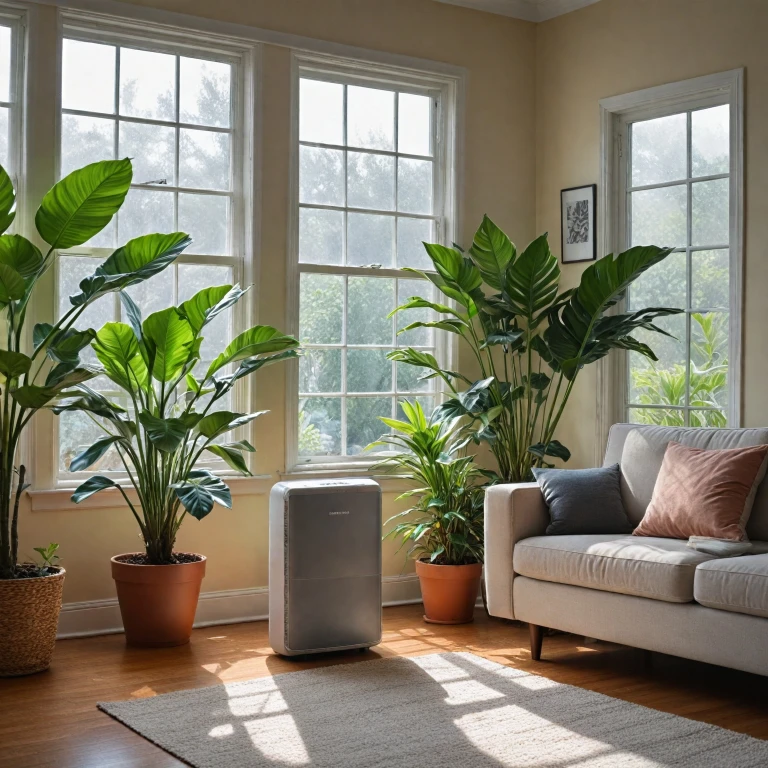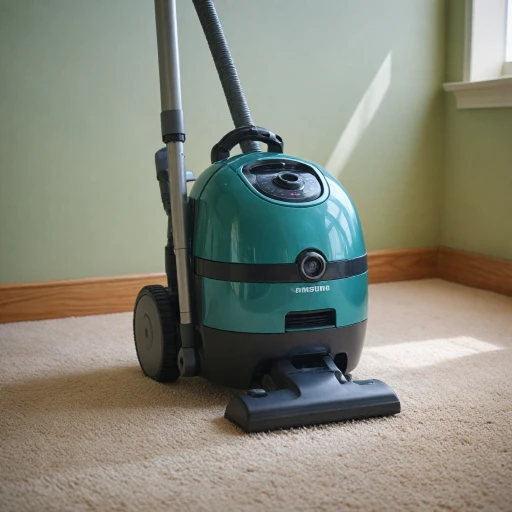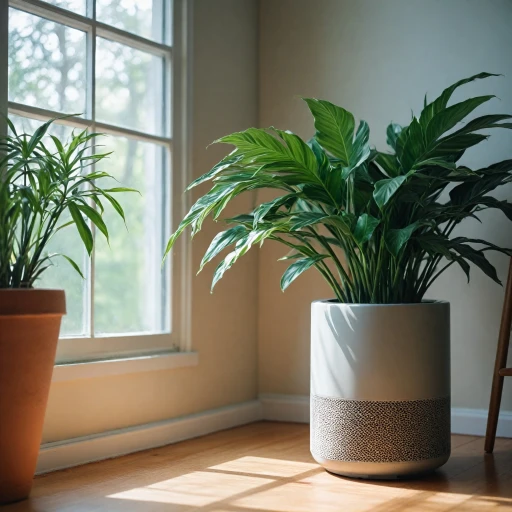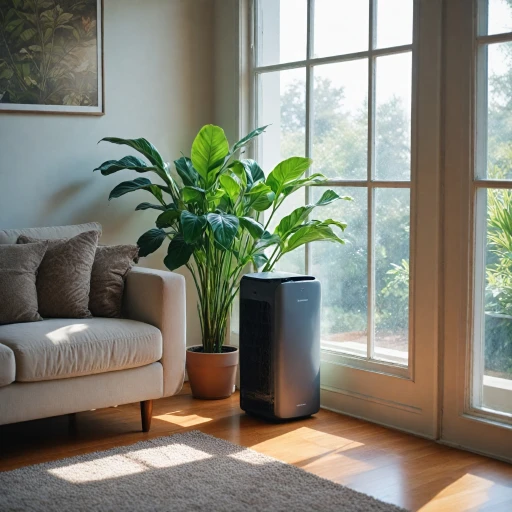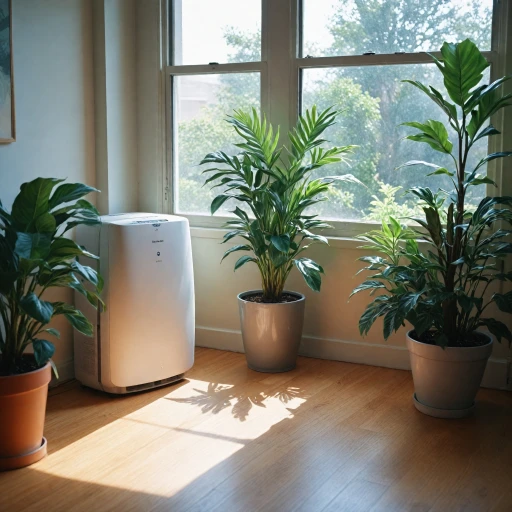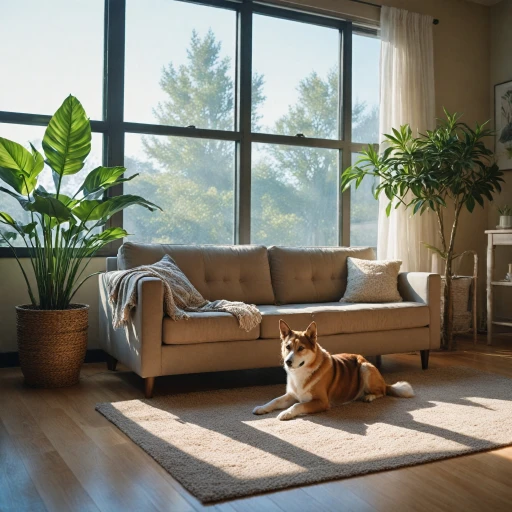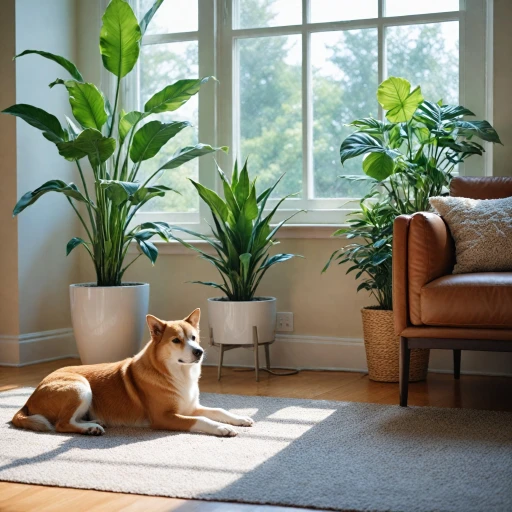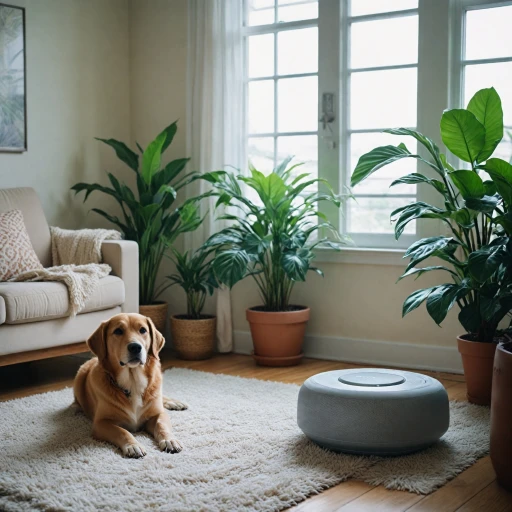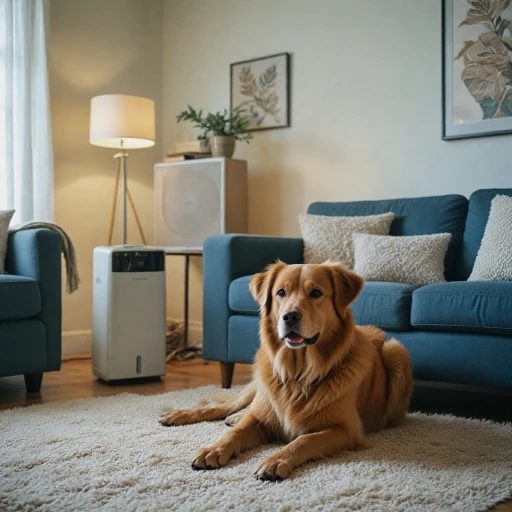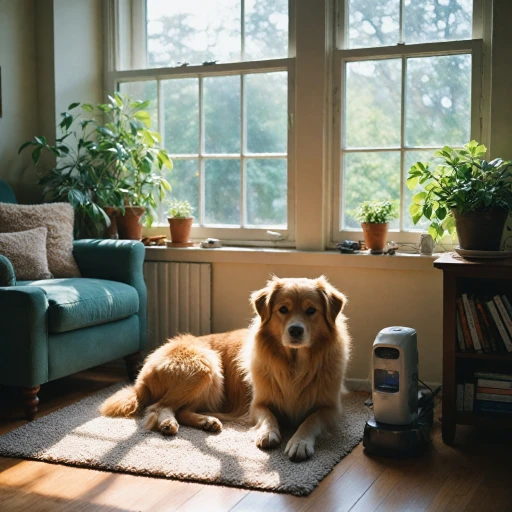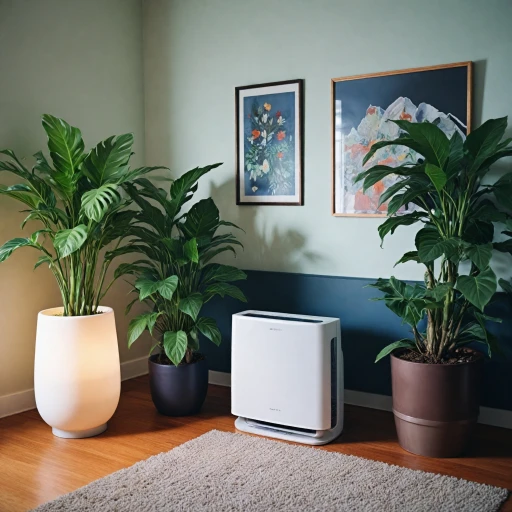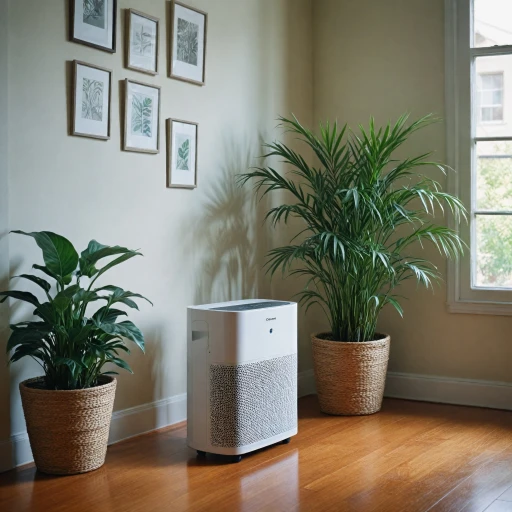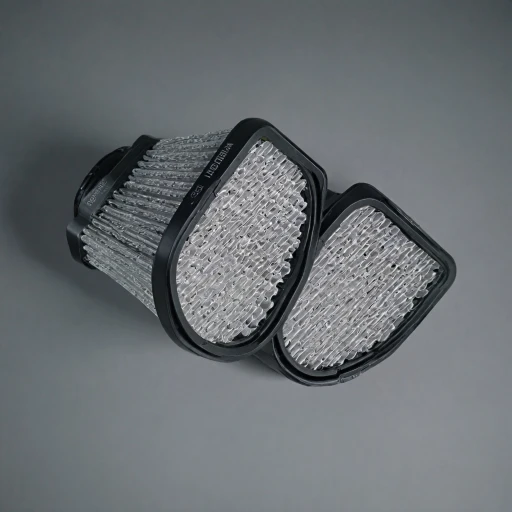
Improving Indoor Air Quality
Enhancing the Air You Breathe Indoors
Improving indoor air quality is paramount in maintaining a comfortable living environment. Air purifiers play a crucial role in this domain, as they effectively capture and reduce airborne particles such as dust, pollen, and mold spores. These microscopic intruders are often invisible to the naked eye, yet they significantly impact our daily health and well-being. Employing technologies like HEPA filters and activated carbon, air purifiers are designed to trap up to 99.97% of particulates, ensuring the air you breathe is as clean as possible. For those with respiratory conditions or allergies, such as asthma or sensitivity to pet dander, these devices can be a lifeline. Beyond just capturing particles, air purifiers also target volatile organic compounds (VOCs) that stem from everyday household products. By reducing these compounds and other indoor air pollutants, purifiers help alleviate irritation and enhance overall air quality. Recent studies further underline the significance of clean air in promoting better sleep quality and fostering improved health outcomes. Through air purification, individuals may experience not only a reduction in respiratory symptoms but also enjoy more restful sleep and increased energy levels during the day. In modern home settings, the adoption of those technologies is not merely a matter of comfort but a smart investment in your health. For a deeper dive into advanced air purification technologies like U17 models with PCO technology, interested readers can explore more here.Health Benefits of Cleaner Air
Breathing Easier and Staying Healthy
Air purifiers offer a wealth of health benefits by significantly enhancing the quality of air you breathe indoors. While outdoor air pollution is a well-known concern, indoor air can often be more polluted, harboring various unseen threats to respiratory health. With effective air purification, allergens, dust mites, and airborne particles such as pollen and pet dander can be drastically reduced.
Hepa filters, found in many reliable air cleaners, are particularly effective in capturing these microscopic invaders. A study on the use of these filters highlights their potential in reducing the risk of asthma attacks and improving overall respiratory health. Additionally, eliminating volatile organic compounds and reducing airborne mold spores can lead to fewer respiratory irritations, providing a cleaner environment for those with sensitivities or compromised health.
Quality air purifiers also contribute to better sleep quality. By minimizing airborne irritants and maintaining cleaner air, purifiers help create a conducive sleep environment, potentially reducing snoring and helping with uninterrupted rest. Better sleep can lead to numerous health benefits, such as improved cognitive function and mood enhancement.
Of course, it’s not solely about immediate respiratory relief. There's substantial evidence suggesting that long-term exposure to cleaner air results in better overall health outcomes. If you're looking for ways to bolster health at home, investing in a high-quality air purifier might well be a prudent and health-conscious choice.
Reducing Household Odors
Eliminating Unpleasant Household Odors
Air purifiers play a crucial role in enhancing the indoor environment by effectively reducing household odors. These unpleasant smells, which can originate from various sources, not only affect comfort but can also impact sleep quality and overall air quality in your home. Odors can arise from cooking, pet dander, tobacco smoke, and volatile organic compounds (VOCs) released by cleaning products or paints. Air purifiers equipped with activated carbon filters or HEPA filters are designed to tackle these odors by trapping airborne particles and removing them from the indoor air.- Activated Carbon Filters: These filters are particularly effective at adsorbing gaseous pollutants and VOCs, thereby neutralizing odors and improving air quality.
- HEPA Filters: While primarily designed to capture fine particles like dust mites and allergens, HEPA filters can also assist in reducing certain types of odors by trapping particles that carry odor molecules.
Energy Efficiency and Cost Considerations
Cost Efficiency and Energy Consumption
When contemplating the acquisition of air purifiers, two pivotal aspects to consider are energy efficiency and overall cost. These devices quietly hum in the background, continuously filtering the indoor air of airborne particles, allergens, and dust mites. Thus, it's crucial to understand the implications of their round-the-clock operation on both your energy bills and the environment.
Modern purifiers are designed with energy efficiency in mind. Many models incorporate low-energy technologies, such as HEPA filters and variable-speed fans, that substantially reduce the electricity consumed without sacrificing air quality. Opting for an Energy Star certified air purifier can be particularly beneficial, as these models adhere to rigorous standards set for energy consumption.
Consider the following when evaluating cost and energy factors in an air cleaner:
- Energy Consumption: Look for units with energy-efficient settings, which adjust based on the level of air pollution detected.
- Filter Replacement Costs: Regular maintenance through timely filter changes is essential. HEPA filters, known for their durability in capturing harmful particles, might have a higher upfront cost but ensure longevity and efficiency in the long run.
- Operational Costs: Calculate long-term expenses, including filter replacements and potential repairs, along with the initial device cost.
By carefully selecting an air purifier with cost-effective and energy-efficient features, you not only invest in cleaner air but also in a more sustainable environment, effectively balancing health benefits with financial considerations. Whether combating asthma triggers like mold and pet dander or enhancing sleep quality by reducing dust, a mindful choice can provide lasting comfort and health advantages.
Technological Features and Innovations
Advanced Technology Enhancements
In the realm of air purification, technological advancements have been a game changer. Air purifiers are now equipped with high-efficiency particulate air (HEPA) filters, which are known for their efficiency in capturing airborne particles as small as 0.3 microns. These include dust mites, pet dander, and mold spores, which can significantly impact health and sleep quality. Recent studies suggest that HEPA air filters are highly effective in reducing exposure to allergens. This helps improve overall air quality and can be particularly beneficial for individuals with asthma or allergies. Look for air purifiers with multiple stages of filtration, including pre-filters and activated carbon filters, which can reduce volatile organic compounds and unpleasant odors from the indoor air. Furthermore, innovations such as smart air purifiers that connect to your smartphone are now available. These devices can monitor air quality in real-time, adjust settings automatically, and even send alerts when it's time to change filters. For energy efficiency, consider models that have energy-saving modes or automated shut-off features when the air is clean. Evaluating and choosing an air purifier that aligns with your lifestyle needs is crucial. Whether you're focused on specific health benefits, improved sleep, or maintaining pristine indoor air quality, staying informed about the latest in purifier technology will help you make an educated decision.Choosing the Right Air Purifier for Your Needs
Selecting an Ideal Device for Enhanced Indoor Air Quality
Choosing an air purifier that meets your specific needs requires consideration of several factors. Whether you are aiming to combat allergens like pet dander, dust mites, or volatile organic compounds, understanding key features is essential. Here's a breakdown of considerations to help you through this process.
- Room Size: The size of the room where you plan to use the air purifier significantly impacts which model you should select. Manufacturers typically specify the maximum square footage their products can effectively serve, so measure your space before purchasing.
- HEPA Filters: Look for purifiers with true HEPA filters as they can trap 99.97% of particles as small as 0.3 microns, including airborne dust, pollen, and mold spores. This inclusion is crucial for individuals with asthma or allergies.
- Noise Level: Your sleep quality can be affected by the noise an air purifier produces. If you intend to place it in a bedroom, consider units specifically designed to operate quietly.
- Energy Efficiency: Energy-efficient purifiers can help keep electricity costs down. Look for models with an Energy Star rating for assurance of energy-saving capabilities.
- Features and Controls: Devices with multiple settings, such as timer modes, remote controls, and air quality sensors, provide more flexibility and convenience in maintaining clean air. Some innovations even offer app connectivity or voice control for seamless operation.
- Filter Replacement: Check how often filters need replacement and the associated costs. Some purifiers offer long-life HEPA filters or washable options that can reduce long-term maintenance expenses.
- Specific Needs: If reducing household odors is a priority, models with activated carbon filters are effective in targeting gaseous pollutants and odors.
- Health Considerations: Purifiers help alleviate symptoms related to indoor air pollutants, positively impacting overall health and wellness. Opt for machines tailored to address your specific health concerns, whether they involve allergens, asthma, or exposure to dust.
Incorporating these considerations into your decision-making process will not only help improve your indoor air quality but also ensure that your chosen air cleaner aligns with your health priorities and lifestyle.

